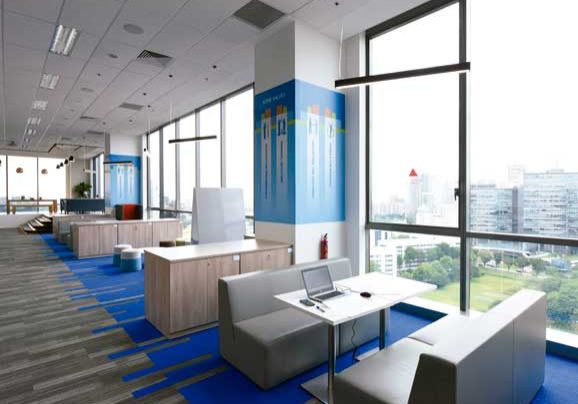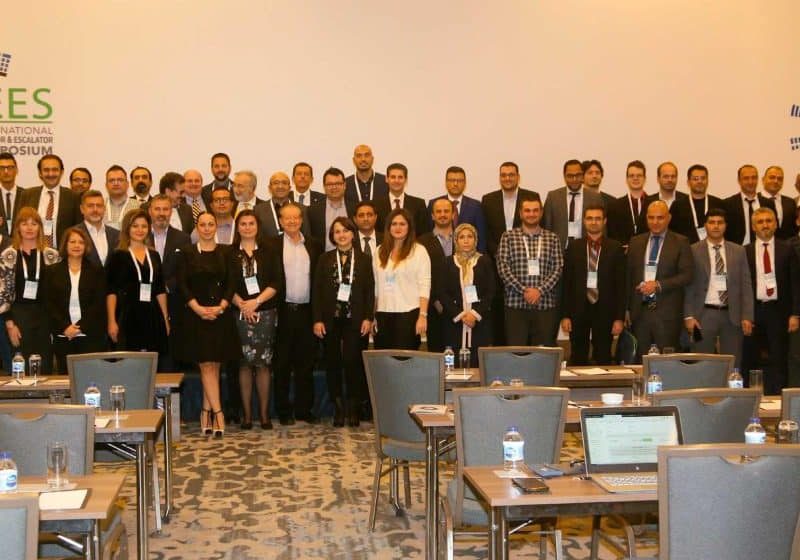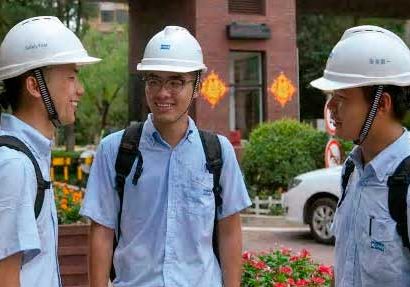Meeting Challenges, Making Plans
Feb 1, 2019

South Africa’s Wesant Manufacturing prioritizes training to lay groundwork for growth.
As international and local vertical- transportation (VT) companies seek to improve the country’s technical and functional expertise, South Africa could soon have an increased number of trained technicians with relevant design, production, installation, service and maintenance skills. A number of lift and elevator companies in South Africa are working with the Manufacturing, Engineering & Related Services Sector Education and Training Authority (MerSETA) to set up training institutions and roll out skills-development programs to ensure their products and services comply with stringent industry safety standards such as the Occupational Health & Safety Act 85/193.
Among these companies is Wesant Manufacturing, which is training technicians to support the continued growth of its installation and service portfolio. Based in the Westmead industrial area of Durban, Wesant has a training program accredited by MerSETA. The intent is to both address a skilled-worker shortage and keep current employees up-to-date on training. Wesant Managing Director Wade Wareing states:
“We are currently accelerating our lift- technician training program to ensure we have enough technicians to continually grow our installation and service portfolio in South Africa without compromising quality or service. It is our firm belief that training workers in the skills of the trade is the only way to ensure the high standards to which Wesant adheres can be communicated effectively and preserved for years to come.”
Wesant Manufacturing was founded in 1995 by Wade Wareing’s father, Digby Wareing, a former Otis apprentice. He had a 33-year career in the VT industry before retiring in 2009. Digby Wareing started his Otis apprenticeship in 1976 and was employed there for five years. While at Otis, he obtained an Electrical Engineering degree. He left Otis to work for a family-owned elevator business. During that time, he obtained a Government Certificate of Competency in Electrical Engineering.
With this qualification in hand, the lift and elevator industry came calling on Digby Wareing again. For the next 14 years, he went to work for another small lift company. What would become Wesant began in 1995. “During that time, I would manufacture certain goods-hoist components in my garage after working hours,” Digby Wareing said. “In 1993, my wife and I started to sell these parts to other companies, as well as to the one I was working for.”
Before his retirement, Digby Wareing oversaw the launch of various lift and elevator products, the start of service lines and an expansion to Namibia. He also picked up several supply contracts in South Africa, a market that has attracted investment from global industry players such as KONE, Otis and Schindler. To stay competitive, Wesant invested heavily in R&D “to discover and assess various alternatives to current market trends and perhaps discover something unique that would set us apart from the rest,” according to Digby Wareing. Today, the company’s lift and elevator experts regularly attend key industry events to learn about the latest technology and products, as well as identify sources of competitively priced and technically advanced components for the manufacture of passenger elevators, platform lifts, dumbwaiters and goods hoists. Wesant has grown beyond the South African market, with 8% of its 2017 orders coming from its partner in Namibia. The company hired additional engineers to focus on exports from 2019 on. “We expect this to be critically important for the growth of our company,” Wade Wareing said.
Although Wesant supplies slightly more than 100 units annually to the South African market, Wade Wareing said the company is on a deliberate mission to substantially increase that figure:
“In the long term, it is likely we would assist in setting up new companies in other African countries and developing local lift technicians to install and service our products. Our ideal export model is to form relationships with established lift companies across Africa that import and install passenger lifts but struggle to source high-quality goods hoists.”
In markets where established VT companies do not exist, Wesant plans to train installation teams in South Africa and give them the opportunity to travel as they install lifts throughout the continent.
Within South Africa, Wesant has been involved in supplying components for goods hoists at the records-management company Metrofile Empangeni in partnership with Hands On Lifts KZN, which also supplies customizable disability elevators, wheelchair lifts and stairlifts.
Wesant also supplied three custom goods hoists to Hands On Lifts KZN and Schindler South Africa for installation at the Midrand, South Africa-based Kansai Plascon paints and coatings facilities, a project Wareing’s engineering team said tested their design and assembling ingenuity. The first unit had a capacity of 4500 kg, a car mass of 3,200 kg and a counterweight mass of more than 5,000 kg. The second was of similar capacity but different car size to conform to a tighter shaft. But, it was the third unit, with 8000-kg capacity, 6,500-kg car mass and 9,500-kg counterweight, that posed the biggest challenge. In one of its project evaluation reports, the team observed:
“Even the 22-kW traction machine for this unit weighs 1500 kg, excluding its base and supports. The unit required eight 16-mm diameter ropes in a 4:1 arrangement to achieve required traction and rope safety factors per EN 81 regulations.”
While implementing the Kansai Plascon hoists, the team dealt with the additional challenge of designing a system serving four floors in a hazardous flammable environment. Electrical circuits were specifically designed and sourced to prevent the possibility of an electrical spark that could cause a fire or explosion. “The project pushed our engineers to develop a new design that can be adapted for similar units in the future,” the team observed.
Apart from project-specific challenges, Wade Wareing says South Africa’s VT industry must address specific concerns to allow for faster market growth. Although the South African VT industry has stringent safety regulations on the manufacturing, installation and servicing of lifts and elevators, “the greater issue is that the regulations have not been effectively enforced,” he said.
Wareing employees frequently encounter units — from brand-new to decades old — that are not maintained at all and are noncompliant with regulations. Common issues include units without governors and safeties, units without locks on the handling doors and units with picket gates used as landing doors. “Often,” Wade Wareing said, “They are blatantly dangerous.” It is not until something goes wrong and someone is injured that such issues are addressed, he observed.
As a company, Wesant appreciates the improvement in South African VT industry regulations — which are largely based on the SANS 1545 series of national standards — especially the drive to harmonize them with European standards. “The progress made so far in the country’s regulatory regime is good for the lifts industry,” he said.
Wesant Manufacturing’s growth — in terms of production volume and market reach in the past 23 years — is yet another demonstration of how small and medium-sized VT industry enterprises in South Africa are being innovative in their quest to stay afloat and compete with multinationals in the market.
Get more of Elevator World. Sign up for our free e-newsletter.








